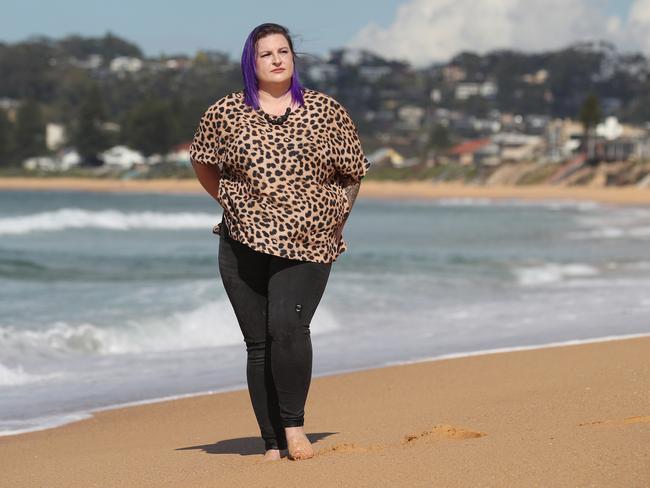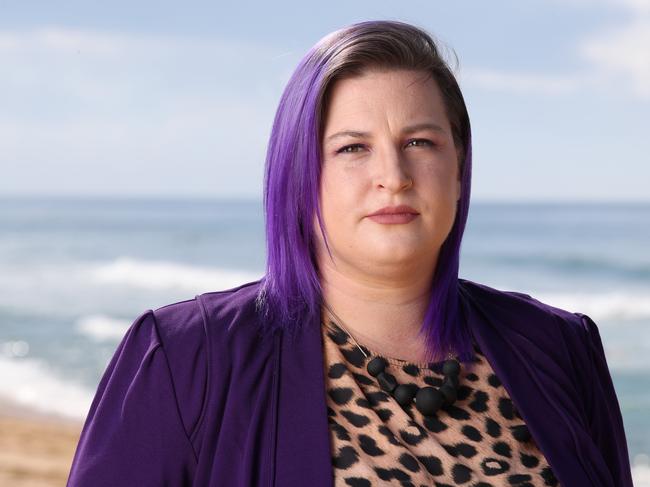‘I wasn’t believed’: consent laws fail sexual assault survivor
When Mel Wojtas was sexually assaulted, consent was the excuse given for police inaction. The mother-of-two tells her story for the first time here.
Police & Courts
Don't miss out on the headlines from Police & Courts. Followed categories will be added to My News.
Mel Wojtas spent an hour pacing outside a Sydney police station before she made the brave decision to go inside and report her sexual assault.
She’d spent three weeks in a fog of trauma, questioning what happened to her and nursing internal injuries.

The then-32-year-old had a medical report and the will to make a statement. But instead of justice, she got a brutal insight into how NSW’s consent laws often work against survivors.
“The Detective told me consent is the grey area that is hard to prove in court, and that even if I make a statement, they wouldn’t pursue it further,” Ms Wojtas said.
“The Detective said: ‘We’ve determined a crime did not occur’. I’ll never forget those words.”
Ms Wojtas, a mother-of-two who has channelled her experience with domestic and sexual violence into advocacy, is telling her sexual assault story for the first time.
Inspired by Australian of the Year and child sexual abuse survivor Grace Tame, Ms Wojtas, now a public speaker and policy consultant, hopes her story illustrates the barriers survivors come up against in the criminal justice system.
In August 2018, she invited an old friend, who she’d previously had safe and consensual sex with years prior, over to her home.
What followed was an “incredibly aggressive, painful and violating” alleged sexual assault. Ms Wojtas said she physically resisted, winced in pain and eventually went numb “to make it finish sooner, a widespread response instead of fighting back or screaming”.
It wasn’t until Ms Wojtas broke down after a meeting with a university counsellor three weeks later that she began to comprehend what had occurred.
“I believe my brain was trying to protect me from the trauma and I went into autopilot for a few weeks while my body was in shock and pain,” she said.
“This masked what had happened to me was actually sexual assault.
“I felt like I couldn’t believe I had let something like this happen with someone I trusted. I even dragged my mattress out from the house and into the garage as I couldn’t bear to be anywhere near it.
“I felt disgusting in my own skin and was suffering dermatitis from over washing my body to wash away that feeling. It was a really dark time.”
In the middle of this, he alleged rapist messaged her. After Ms Wojtas replied that she was receiving trauma counselling and in physical pain, he wrote several messages, including that he considered calling and visiting her.
“I think the police read those responses and thought ‘we can’t take this to court; she invited him over and he said he was sorry in the messages’,” she said. When Ms Wojtas went into the police station, she took the message history with her.
There were things that may have raised doubt with a jury — Ms Wojtas had invited the man to her house, they’d had sex before and she had messaged him after the alleged rape.
“I remember having to explain (to police) just because I invited him over doesn’t mean that’s the green light for consent for anything that happens when you arrive,” she said.

Sexual assault offences are hugely under-reported, and those incidents that make it to police usually don’t go much further.
But if they get to court, there is a heavy focus on the victim’s actions; what she did, wore, said, sent before and after the alleged assault.
In NSW a prosecutor must prove a perpetrator either knew an alleged sexual assault victim was not consenting, ought to have known or had no reasonable grounds to believe it.
The laws have comes under fire recently, with calls to move NSW towards an affirmative consent model — something the state government is yet to decide on.
Saxon Mullins became a fierce advocate for affirmative consent laws after her own rape case was the catalyst for a two-year legal review.
She said Ms Wojtas’s case highlighted what was wrong with current consent laws and how inconsistent policing affected survivors.

“If affirmative consent was legislated in NSW, the law would capture cases like Ms Wojtas’s,” the director of Rape and Sexual Assault Advocacy and Research (RASARA) said.
“In court she would not have to explain why she didn’t ‘fight back’ it would be on the accused to explain what steps he took to make sure she was consenting.”
Ms Wojtas described her reporting experience as “re-traumatising”, and the news that police wouldn’t take her statement as devastating.
Following that, she deferred university where she was studying a social sciences degree to help launch a homelessness service for domestic violence survivors and leaned heavily on family and sexual assault support services.
Ms Wojtas believes she should have been offered a support person at the police station, referred to a sexual assault support service and, as a starting point, believed.
“I remember trying to explain some things that happened during the assault and they kept saying ‘OK but you didn’t say no, you didn’t fight back’,” she said.
“I wasn’t informed the gruelling interview wasn’t a statement interview and was told to return at another time to do that. I felt frustrated as I was already there telling them what happened.
“I recalled in painful detail what I did to resist. There was no communication and this person didn’t ask if it was OK.
“I was in physical pain and tried to resist and they were so focused on the act they went ahead anyway. That is not sex, that is a crime.”
Ms Wojtas supports the Saturday and Sunday Telegraph’s campaign, in partnership with RASARA, calling for NSW to adopt affirmative consent.
“Currently a perpetrator of sexual violence is deemed innocent until proven guilty, while a victim-survivor of the same act is automatically lying until proven otherwise,” she sad.
NSW Attorney-General Mark Speakman said the community would know “sooner rather than later” what the government’s response was to consent law reform.
Lifeline 13 11 14
NSW Rape Crisis 1800424017
ava.benny-morrison@news.com.au
Read related topics:NSW consent laws



